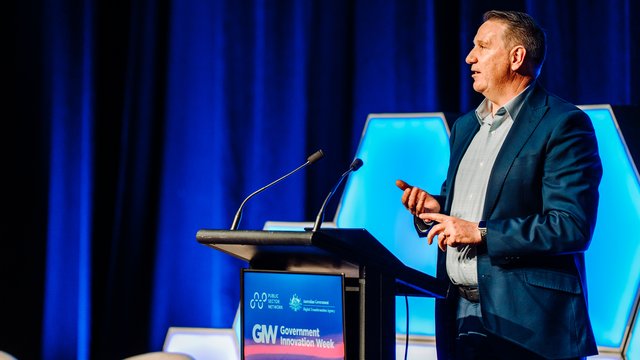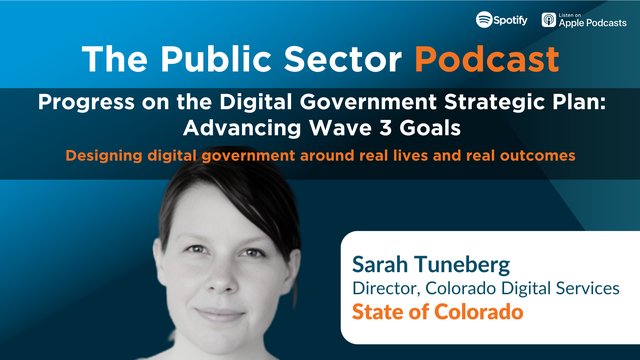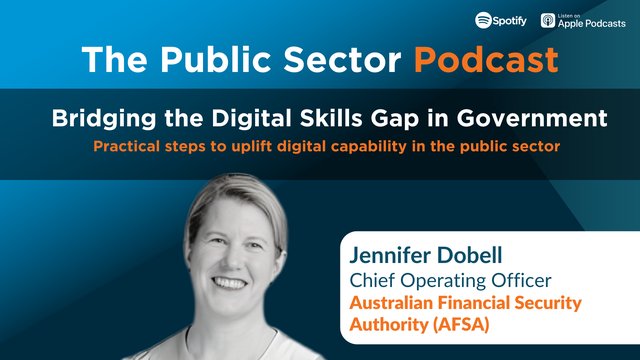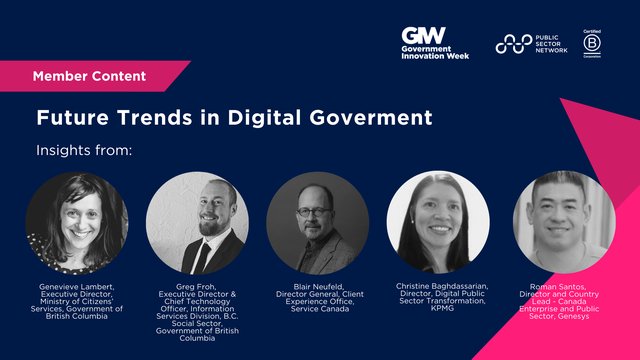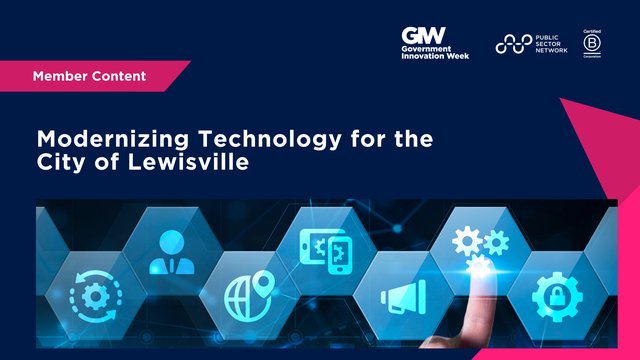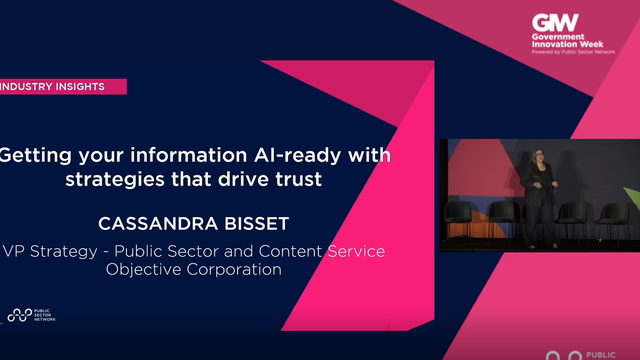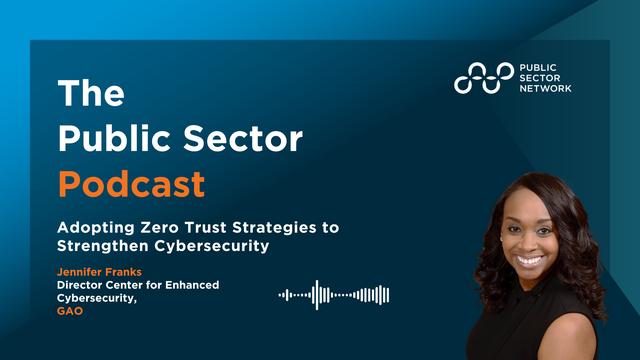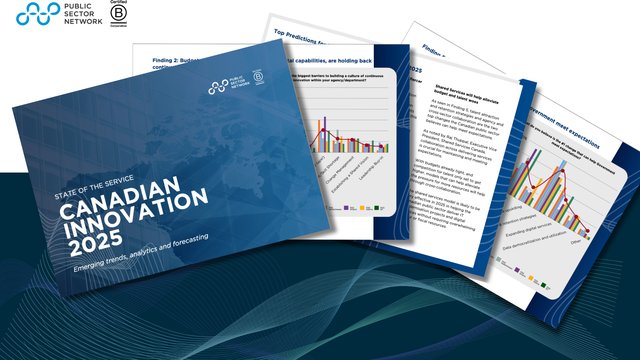As we celebrate Women’s History Month throughout the month of March, as well as International Women’s Day on March 8th – Public Sector Network has engaged with some of the sharpest, creative, and most engaging leaders in the public sector today.
We have designed a series of Women in Leadership Spotlights that we hope will engage, inform, and inspire you to be bold, to think big, and to make positive change.
For the last edition in the series, we sat down with Marjorie Cadogan - who heads the Office of Citywide Health Insurance Access at the NYC Human Resources Administration as their Executive Deputy Commissioner.
Q1
Please tell us a bit about what you do, how you got there, and what you love about your work?
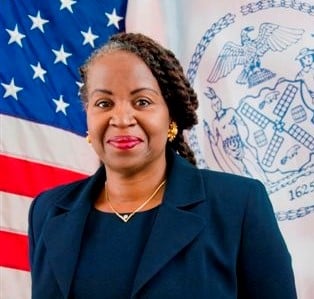
In short, I am a health insurance problem solver and educator. I lead a dedicated team in the NYC Human Resources Administration’s Office of Citywide Health Insurance Access to expand access to health insurance for New York City residents and small businesses. We achieve our mission in a variety of ways: by administering a Citywide outreach and enrollment assistance initiative known as NYC Health Insurance Link which uses city agency sites, activities and programs to insinuate health insurance outreach and education into New Yorkers’ routine interactions with city services; maintenance of a comprehensive website of health insurance guidance and materials; operation of special projects and programs to serve specific populations among the uninsured and regular review of emerging health insurance policy and research about health insurance and health care access. I have come to this work through my true and long-lasting love of service in City government.
What I love most about my current work and that of our team is that we represent policy in action. New York City has long been committed to ensuring that all residents and small businesses have access to benefits and services that they need and deserve, including access to health insurance. We bring that commitment to life in the brochures and fact sheets that we develop and the workshops, webinars, outreach and policy discussions that we conduct in our everyday work. I also like the broad variety of work we do—all around our efforts to help New Yorkers understand and act wisely to address their health care and health insurance needs.
Q2:
As a woman (and a leader) who has spent time in both the private and public sectors, how have you seen things evolve in terms of diversity & inclusivity since your career first began? Where do you feel there is still room to improve?
One of the reasons that I have committed much of my career to municipal government is because I have found that it vividly reflects the diversity that it inherent to New York City. Over the course of my tenure as a lawyer and leader in City government, I have seen an ever-increasing number of women ascend to senior management and leadership positions.
What has become all too clear to us this year is that we have to do much better at providing child care and other resources for families both as women ascend to leadership positions and mature in those roles because the ability to balance work priorities and family obligations can often be a tight rope for women at best. Right now, we see that some women are slipping off because they do not have a support system to “do it all”, which can have lasting impact on their career and earning potential.
I also think that we have to be more proactive in grooming women and people of color so that that they consider and are ready to assume leadership roles in government through mentoring, job shadowing initiatives and other efforts. We can achieve the inclusivity and diversity we need if we remain consistently intentional about doing so.
Q3:
What made you gravitate towards your current work at the intersection between Human Resources and Healthcare within the public sector? What continues to drive your passion for this and how does that manifest itself?

I came into this position after spending seven years at a wonderful non-profit that was starting up at that time, the Primary Care Development Corporation, created by Mayor David N. Dinkins to finance the development of primary health care centers in New York City’s underserved communities. I was fortunate to learn much about primary care from a deeply knowledgeable and dedicated leader, Ronda Kotelchuck, who also helped me to prepare me for future leadership in the healthcare arena. When the opportunity came along in 2002 to lead this office, I welcomed the chance to return to City government where I had started my career as a lawyer in 1985. I have always been committed to serving the residents of this City, particularly underserved communities of color across the five boroughs, and my passion for service continues to this day.
Q4:
Who is one woman who has been a strong role model for you in your career? Can you explain why, and how, they inspired you or helped you succeed? Concurrently - Why is it important to be a role model for other women in your field and in public service?
There are many women whom I admire and that have been touchstones for me, including my own mother. She was the first of her siblings to immigrate to the United States from Barbados, establish herself as a dedicated nurse and help all three of her siblings to immigrate and achieve professional success in the United States. She modeled the discipline and hard work that has always been needed for women of color to thrive and excel and made me appreciate the gift of healing.
The woman who stood out as a foremost role model for me in my professional life was the Honorable Constance Baker Motley. She was the person that inspired me to pursue the law and use it to advance positive change for people of color. She also helped see the many milestone achievements that are possible for African-American women.
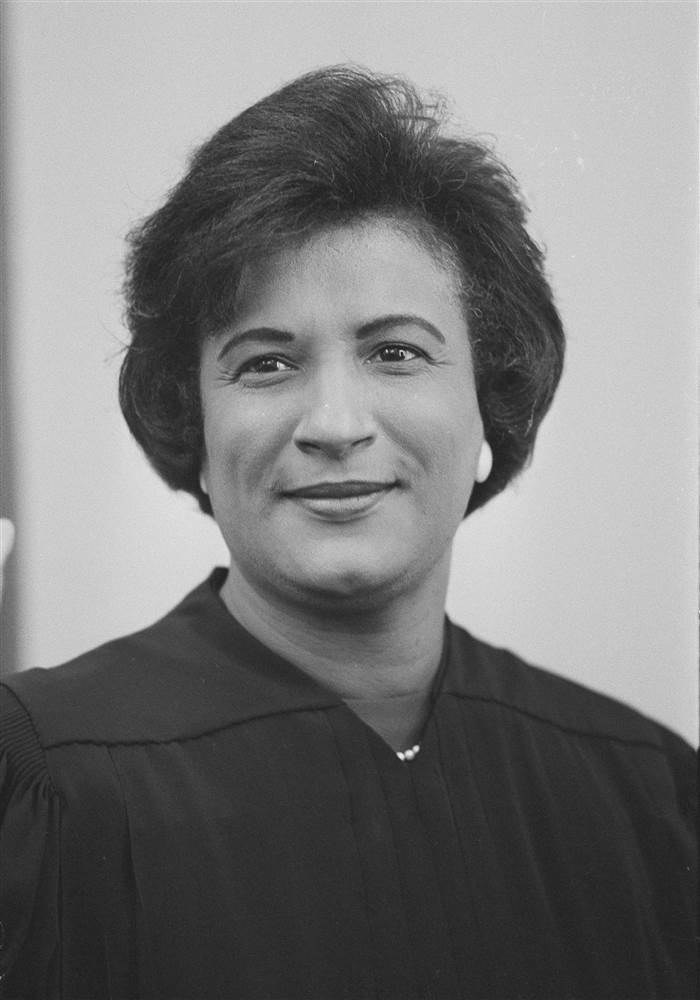
Federal Judge Constance Baker Motley on Sept. 9, 1966.Eddie Adams / AP
She clerked for the Honorable Thurgood Marshall during his tenure with the U. S. Supreme Court, wrote the complaint in the landmark case of Brown v. Board of Education and devoted much of her career with the NAACP Legal Defense Fund to advance the cause of civil rights. She also blazed a trail with many firsts in her long career. She was the first African-American woman to argue before the U.S. Supreme Court, the first African- American to be elected as Manhattan Borough President and the first African American appointed as a federal judge. I had the privilege of meeting her during my career and beyond her many accomplishments, what stood out for me during our meeting was her humility and humor. Judge Motley represented all of the qualities that I hope that I can display as a public servant-strong intellect, drive, dedication, innovation and character.
It is important to be a role model, but I believe that you accomplish that by simply doing your best work and making your best contributions to your organization—whether it is in advocating for innovative ideas with your leader, finding opportunities to grow the skills and talents of your colleagues and team members as you work together, and being open to providing counsel to those considering a career in government or other public service.
Q5:
What advice would you give to the younger generation of women in this field and more broadly within public service? What is one piece of advice you wish someone had shared with you when you were just beginning your career?
I would tell any young person interested in an exciting career to affect lasting change in the lives of their neighbors and communities they value to consider a role in municipal government. I could not have imagined when I began my career as an attorney for the New York City Law Department that that preparation would allow me to embark on a path that would result in my return to City service in a leadership role. The breadth and depth of issues and policies I have had the honor to engage in over nearly 30 years of City service is hard to find elsewhere in the public or private sectors.
I would also encourage anyone in the early stages of their career to seek out mentors inside and outside of the workplace to help them examine their skills and design a professional path beyond their dreams. I did not actively do this early in my career, but I was fortunate enough to encounter a number of leaders who wanted to help connect me to opportunities and positions that would challenge me and use my full breadth of skills. I had role models like David Klasfeld, Esq., who was then Counsel to Deputy Mayor Fran Reiter and got to know me while we both worked on issues at the NYC Loft Board. He helped me have the confidence to seek out and obtain the position of General Counsel for the NYC Department of Parks and Recreation and, after several years in that role, he introduced me to the founding Executive Director of the Primary Care Development Corporation who was then looking for a Director of External Affairs. I landed that role and used my knowledge and experience in City zoning and land use processes to shepherd many primary care center construction projects through City approval processes in record time. David was one of many mentors that have blessed my professional life and each one has helped me navigate my professional path, making a more clear and richer experience.
Q6:
How has the COVID-19 pandemic impacted your outlook and approach to your work? What key lessons have you learned that you have applied?

The COVID-19 pandemic has taught me that you must be willing to expand your flexibility and adaptability as a leader, be ready to support your team through unexpected change and encourage your team to seek out the opportunities that adversity can bring your way. My colleagues and I at the Office of Citywide Health Insurance Access have been working from home since March 2020 and, in many ways, we have been busier than ever during this period of remote work. As we have worked during a period of significant crisis, knowledge of one’s health care and health insurance options has become essential. Our work now is to ensure NYC residents and small businesses can get the care they need to stay safe, recover from COVID-19 and ultimately overcome the adversity that this pandemic can create for health and economic security.
I have encouraged our team to maximize our use of as many virtual platforms as reasonably possible to drive knowledge and resources to our fellow New Yorkers about how to access coverage and care at this time. We seek out new and varied platforms in partnership with City agencies, faith and community-based organizations and other local organizations to convey this information through training sessions for school nurses, webinars for entrepreneurs and small business owners, partnerships with local radio networks, workshops for college students and local faith groups, use of new social media campaigns and the launch of a new newsletter to help seniors access help to enroll in Medicaid.
I have also learned this kind of creativity can only come when you take time to protect the morale of your team because work has become so vastly different now from any other time in our history; work blends into life and vice versa. It is important to “take the temperature” of your team and each of its members regularly to make sure they have all the resources needed to continue to move forward at work and balance their obligations to family and home life as well. You also need a supportive leadership structure to allow you to get the necessary support to deliver this range of work. We are fortunate at the NYC Human Resources Administration to have a Commissioner and senior leadership who are as committed to innovation as we are in our team.
Q7:
What does women's history month mean to you?
This women’s history month is more meaningful to me than it has been in recent years. Each year, we salute the contributions of women as trailblazers, but this year, as we have a newfound understanding and appreciation for the roles so many women have assumed to maintain balance between their work priorities and their family obligations or, where needed or required, to choose their family priorities over their work demands. We see women performing essential work across a variety of industries to allow many of us to operate fully and safely from home central. This year we also see the first African-American and Asian American woman ascend to the role of Vice President of the United States.
This women’s history month is more meaningful to me than it has been in recent years. Each year, we salute the contributions of women as trailblazers, but this year, as we have a newfound understanding and appreciation for the roles so many women have assumed to maintain balance between their work priorities and their family obligations or, where needed or required, to choose their family priorities over their work demands. We see women performing essential work across a variety of industries to allow many of us to operate fully and safely from home central. This year we also see the first African-American and Asian American woman ascend to the role of Vice President of the United States.




